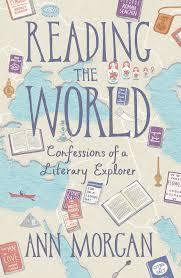For every inspirational quote, there is another that yanks us down to the bottom of the murky river bed. For every kind thought from a stranger, there is an sharp thrust of unkindness from a near one, all for your very own good, of course.

The way to hell is paved, crenellated, wallpapered and sandblasted with good intentions couched in cruel terminology. There is often no subtlety involved (‘obese’, ‘bags of fat on two legs’, ‘heart attack waiting to happen’), while at other times a theatrical sigh will underline that another poison arrow is striving to reach its mark: ‘I’ll only stop praying for you when you finally have found a decent job.’
Good old Dobbin, you work horse, you clothes horse. Keep on plodding and don’t take your nose out of your snuffle-bag or wardrobe until you find the right job, that makes them proud rather than you happy, the perfect dress that covers your stumps, denies your belly, turns your liabilities into assets and doesn’t cost a fortune either, into the bargain (bin)!
Then there are all of those black-and-white world views, all tinged with horrific fatality. All children of divorced parents end up drug addicts or lunatics or worse. All men cheat, all women suffer. Women punish by cutting off their noses to spite their faces. They imprison the man into vengeful marriage, piercing snide remarks, alimony payments, guilt, guilt, guilt. No matter how much men might pressure you into having babies, you will end up with the precious bundles and all their messes – they will only take the glory and successes. A boast at the office and nothing too tangly to weigh yourself down.
Meantime, princess, you’re too old, your pink too soiled, far too busy doing the things you should be doing, to waste time on creative nonsense. Life is to be endured, not to be enjoyed. We have no right to expect happiness. To be selfish. To scratch meaningless little words in short lines and call them poetry. Exchange your heels for flip-flops and wait out the ice-cube tinkling cocktail hour. Jump in and drown in the pool of your perfectly content disapproval.
We have every right to expect happiness. We were the apple, the peach, the light of our mother’s eyes. She did all she could to make us happy and was expecting you, quite frankly, to do more of the same. We cannot be happy with someone who is unhappy. What on earth do you think we should do when that happens — we’re not equipped, not trained, not interested… We twiddle our thumbs defensively. We look down, shuffle our feet, speed out the door, no longer want to be seen with this person in public. We do not want to rock the boat… unless it’s us doing the rocking. We’re worth it, but she isn’t because she wants too much, she wants the impossible. Because she is illogical, irrational, all emoting gushingness – so like a woman!
Pipe down, you shrew, your ranting is giving us all headaches! Who wants or needs feminism now anyway, when it’s proven women can have everything they want, but they don’t know how to choose wisely?
Why should we help when she ends up doing it alone anyway? How else can we prove our independence, our maturity, our love for our father, or that she is needed? These moments pass so fast, we grow up so quickly, she’ll cry later, when we leave home. She already feels the loneliness whenever we leave the house for a day, for a week, for a lifetime. She talks too much, she repeats incessantly and what she has to say we have long since stopped believing. What would each member of our family be if we were animals? A koala, a panda, a giraffe – the cuddliest and tallest all sorted. Mother? A bookworm.
Does the worm ever turn?

This piece of prose above has its origin in some family history, the great voices of feminism and the quote below from French writer Virginie Despentes.
Parce que l’idéal de la femme blanche, séduisante mais pas pute, bien mariée mais pas effacée, travaillant mais sans trop réussir, pour ne pas écraser son homme, mince mais pas névrosée par la nourriture, restant indéfiniment jeune sans se faire défigurer par les chirurgiens de l’esthétique, maman épanouie mais pas accaparée par les couches et les devoirs d’école, bonne maîtresse de maison mais pas bonniche traditionnelle, cultivée mais moins qu’un homme, cette femme blanche heureuse qu’on nous brandit tout le temps sous le nez, celle à laquelle on devrait faire l’effort de ressembler, à part qu’elle a l’air de beaucoup s’emmerder pour pas grand-chose, de toutes façons je ne l’ai jamais croisée, nulle part. Je crois bien qu’elle n’existe pas. (Virginie Despentes)
[The ideal of the white woman, seductive but not a slut, well married but not faded, working but without being too successful so as not to crush her husband, slender without becoming obsessed about food, forever young without having to resort to cosmetic surgery, a mother in bloom without being too overcome by nappies and homework, good housekeeper without becoming a traditional housewife, well-read but not quite as much as a man, this happy white woman that they keep brandishing under our noses, that we’re supposed to try and resemble (except when she goes ape-shit about insignificant things), well, I’ve never met her anywhere. I do believe she doesn’t exist.] (my translation, with apologies to the original)












